“White African” and Federer team up for kids
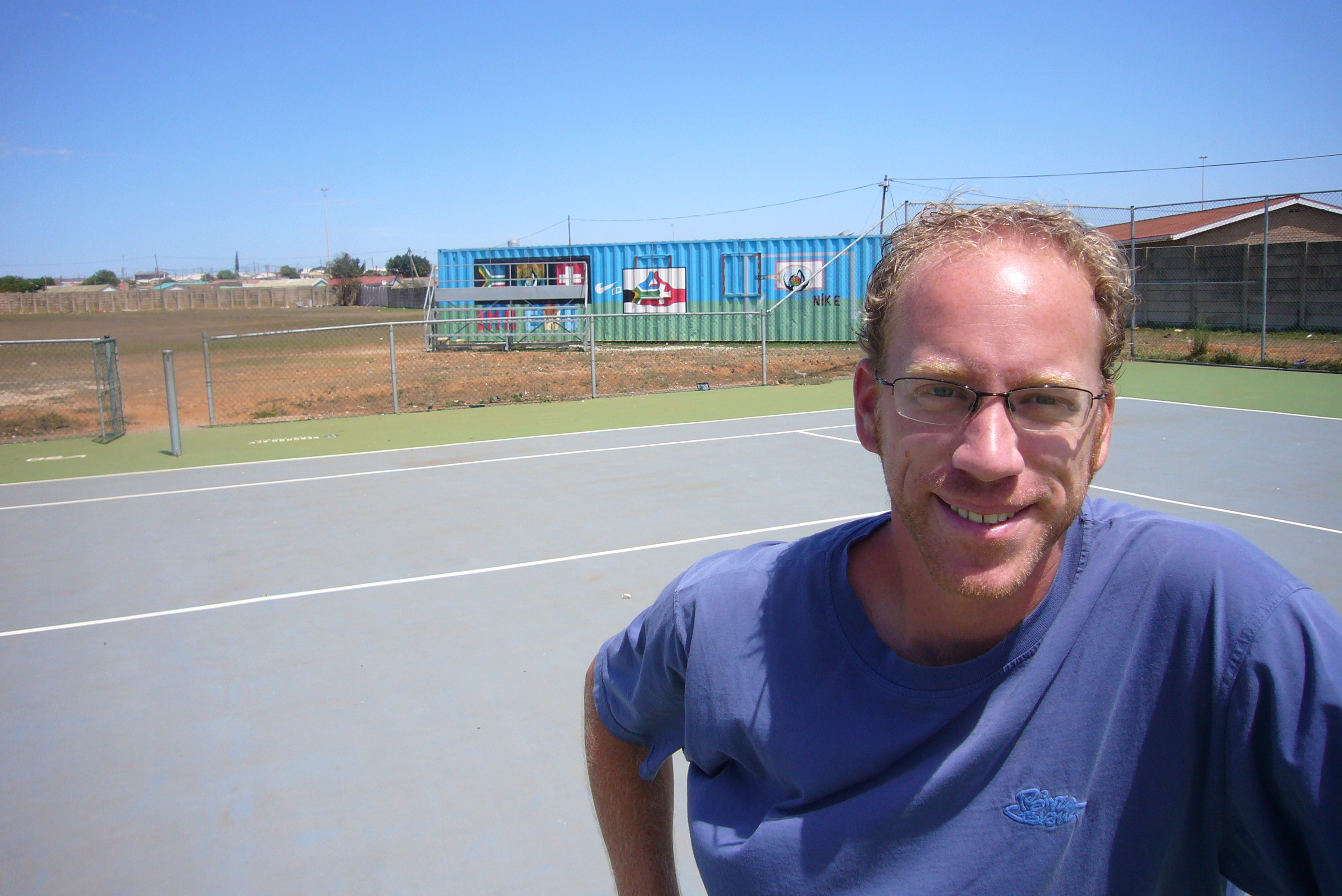
The Swiss-based non governmental organisation Imbewu has for the past ten years been helping the children of Port Elizabeth – South Africa’s fifth largest city.
Its co-founder, Pascal Holliger, reflects on the history of an adventure that has been such a large part of his own growing up. Imbewu is a long-standing partner of the foundation of tennis champion Roger Federer.
Don’t make the mistake of telling Holliger that he speaks English with a Swiss-German accent.
“It’s a Zulu accent”, explodes the aid worker, a native French speaker, before an audience of expatriates. They have gathered for a picnic on a warm and windy February afternoon in Port Elizabeth.
Born in the Swiss town of Neuchâtel 29 years ago, Holliger is a garrulous but endearing and sensitive man, Though at ease in every situation, he does not hide his aversion for this segregated way of life.
The beautiful swimming pool, manicured garden, electric fencing around the property and patriotic gatherings on August 1 – Switzerland’s National Day – are not his cup of tea.
He experienced it all in his childhood, when his parents were working in Johannesburg and his contacts with the black population were restricted to the maid and the gardener.
VW minibus
In 2001, having completed his secondary school studies, free-and-easy and without a care in the world, the young Pascal returned for a family holiday to the country he had known only from a white perspective.
He ended up staying for eight months. In Port Elizabeth, he first discovered the other face of South Africa, black and deeply scarred by more than 50 years of a hateful system of racial segregation.
With three South African friends, be bought a 1972 VW minibus and began organising “township tours” for tourists.
“Our bus became a legend in the township of New Brighton”, he remembers with a trace of nostalgia. It was in this bus that the NGO Imbewu – meaning ‘seed’ in the Xhosa language – was born.
Back in Switzerland, Holliger took over the running of the organisation.
Alongside his studies in international relations in Geneva, and part-time student jobs, the young man gave himself body and soul to the task of finding donors prepared to sponsor needy South African children.
Thanks to an exchange programme, many young people from the region also had the opportunity to share a few months of their lives with South African youth.
Amazing support
“At that time there was amazing support for Imbewu in French-speaking Switzerland. Practically all the inhabitants of my home village of Coffrane became members of the association”, says Holliger.
In 2004, to mark the tenth anniversary of the first free elections in South Africa, a special evening was organised at Festi’neuch, Neuchâtel’s foremost music festival.
Holliger and his team invited Johnny Clegg, and also Raymond Mhlaba, an emblematic figure of the anti-apartheid struggle, to take part in the event on the banks of Lake Neuchâtel.
In 2004, Imbewu was also the first NGO to receive support from the Roger Federer Foundation.
Lynette, the tennis star’s South African mother, and Robert, his father, visited South Africa on several occasions. “At first a bit wary, but later he became a great supporter of our organisation,” says Holliger.
Federer in Port Elizabeth
The media got hold of the story and when the champion himself visited Port Elizabeth, in 2005, it really hit the headlines.
But this was the beginning of a period of “ups and downs” for the organisation. The means at its disposal increased, but so did the difficult issues.
Imbewu became more professional. In 2006, Holliger went to live in Port Elizabeth, as expatriate coordinator.
But tensions within the organisation led to a painful but inevitable separation. Since then the Swiss and South African branches of Imbewu have developed separately.
Broken by apartheid
For Holliger, these problems are common to all NGOs, particularly in so difficult a historical, cultural and socio-economic context.
“Among both whites and blacks, there are two generations which have been lost to apartheid. We now need to make strenuous efforts to minimise the damage to the younger generation,” he says.
With this in mind, Imbewu is concentrating all its energies on development through sport. With the World Cup approaching, sponsors are flocking in.
Through their local partner NGO, Umzingisi, Holliger is rediscovering the true sense of his vocation: restoring young people’s self-esteem and raising their awareness of social problems (drugs, violence, Aids) through sporting activities.
As he approaches his 30th anniversary, Holliger – sometimes nicknamed the ‘white kaffir’, with his curly hair, almost perfect mastery of the Xhosa language and 100 per cent African Vibes record collection – has decided to launch a new venture when the World Cup is over.
Ambassador
With his impressive portfolio of contacts, ranging from Prince Albert of Monaco to former Swiss cabinet minister and United Nations special advisor for sport and development, Adolf Ogi, the young man should be able to find interesting employment in any part of the world.
But Port Elizabeth may not be keen to let him go.
Day and night, Holliger is a monument to the life of the townships of Zwide and New Brighton, where he lived for two years.
Few people can claim such in-depth knowledge of the city’s stormy history and the social realities it faces today. “He is one of our best ambassadors”, says the director of the local tourist office.
At the wheel of his blue VW Chico, windows down, arm hanging out to greet old acquaintances, Holliger continues to cruise through districts where some white South Africans have never ever set foot.
“The hardest thing for me is having to go back to my own wealthy district each evening. I can never really come to terms with it.”
Now a father – his partner Kim Ramirez, also from Neuchâtel, gave birth to a little boy just a few days ago -, Holliger is entering his maturity with an incredibly wide range of experience.
Samuel Jaberg in Port Elizabeth, swissinfo.ch (adapted from French)
Imbewu is a NGO helping underprivileged children in Port Elizabeth, South Africa.
The group was founded in 2001 by Pascal Holliger and three South Africans in the township of New Brighton.
The group’s annual budget of SFr380,000 receives SFr80,000 annually from the Roger Federer Foundation. The support ends next year.
Imbewu’s aim is to strengthen the psychosocial development of young South Africans. After-school sport programmes range from social issues to health and aim to reduce risky behaviour.
The organisation, through partnerships with other South African NGOs, supports career counselling, scholarships and development through sport and cultural exchanges.
Located on South Africa’s southern coast, Port Elizabeth is known as the City of Winds.
It is the capital of South Africa’s automotive industry, which employs tens of thousands of people. Affected by the crisis in the car industry, the city is trying to diversify its economy and is promoting tourism.
With 1.3 million inhabitants, it is the country’s fifth-largest city. Nearly 800,000 people live in townships northeast of the city.
It is one of the cities that will host Fifa’s first World Cup on African soil.
Switzerland’s football team will play their second group match against Chile on June 21 in Port Elizabeth.
The newly built Nelson Mandela Bay Stadium, cost of more than SFr300 million, and seats 48,000 people.

In compliance with the JTI standards
More: SWI swissinfo.ch certified by the Journalism Trust Initiative
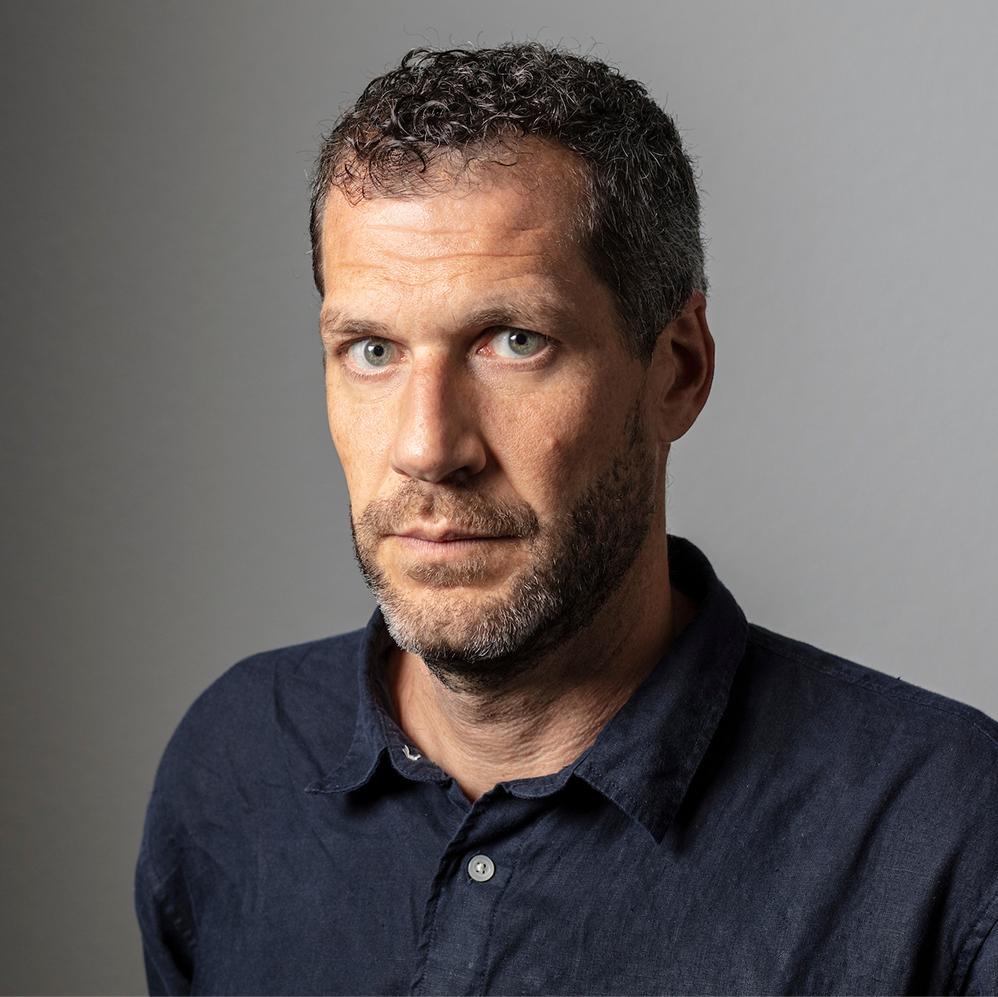
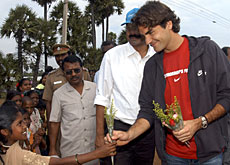
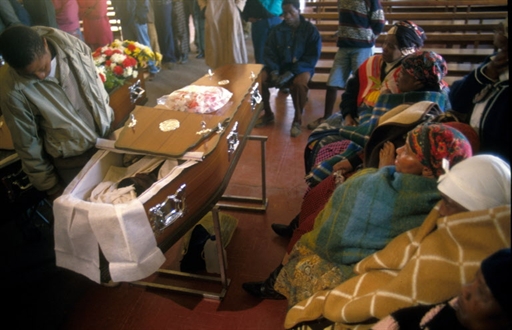
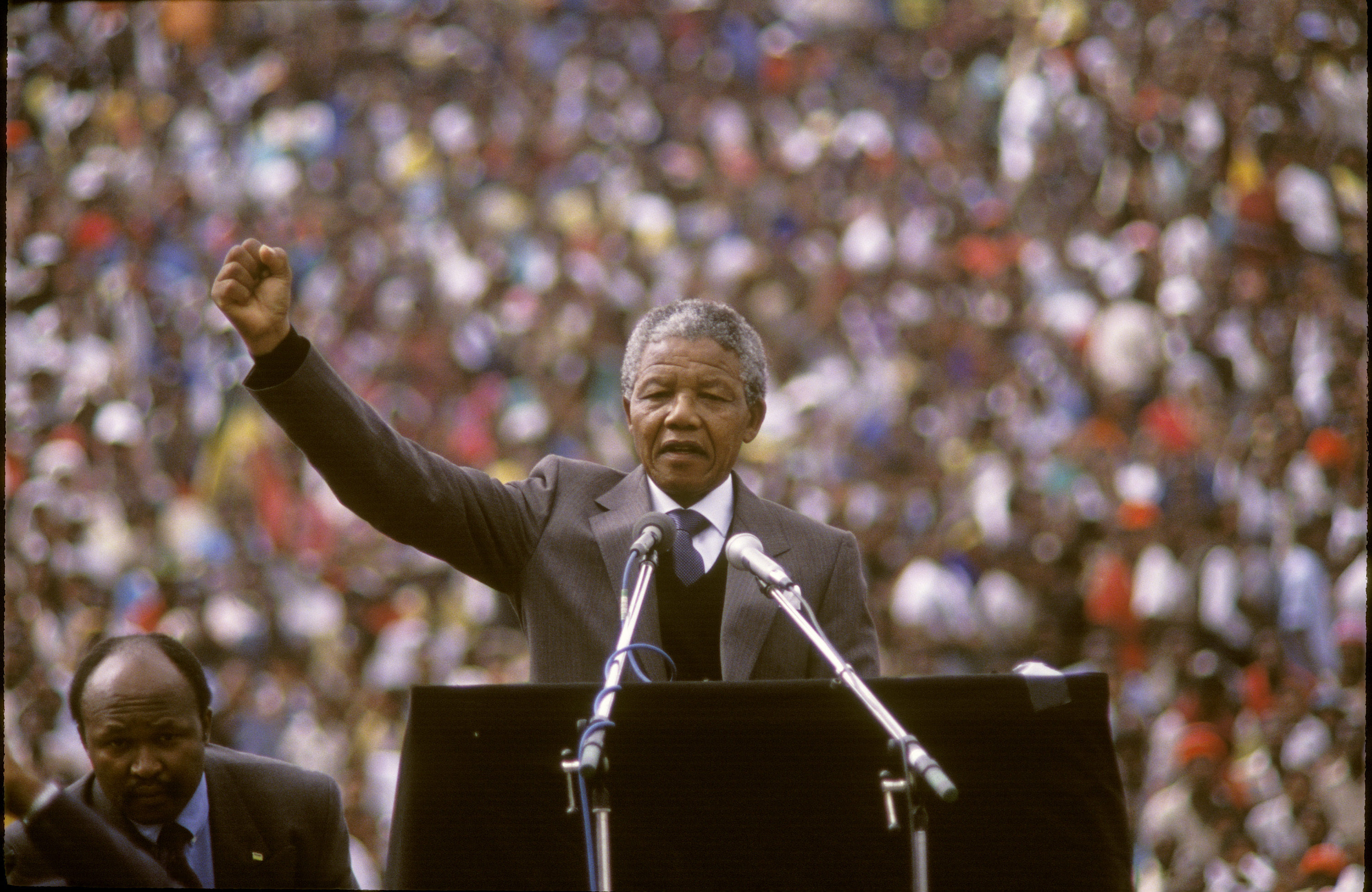
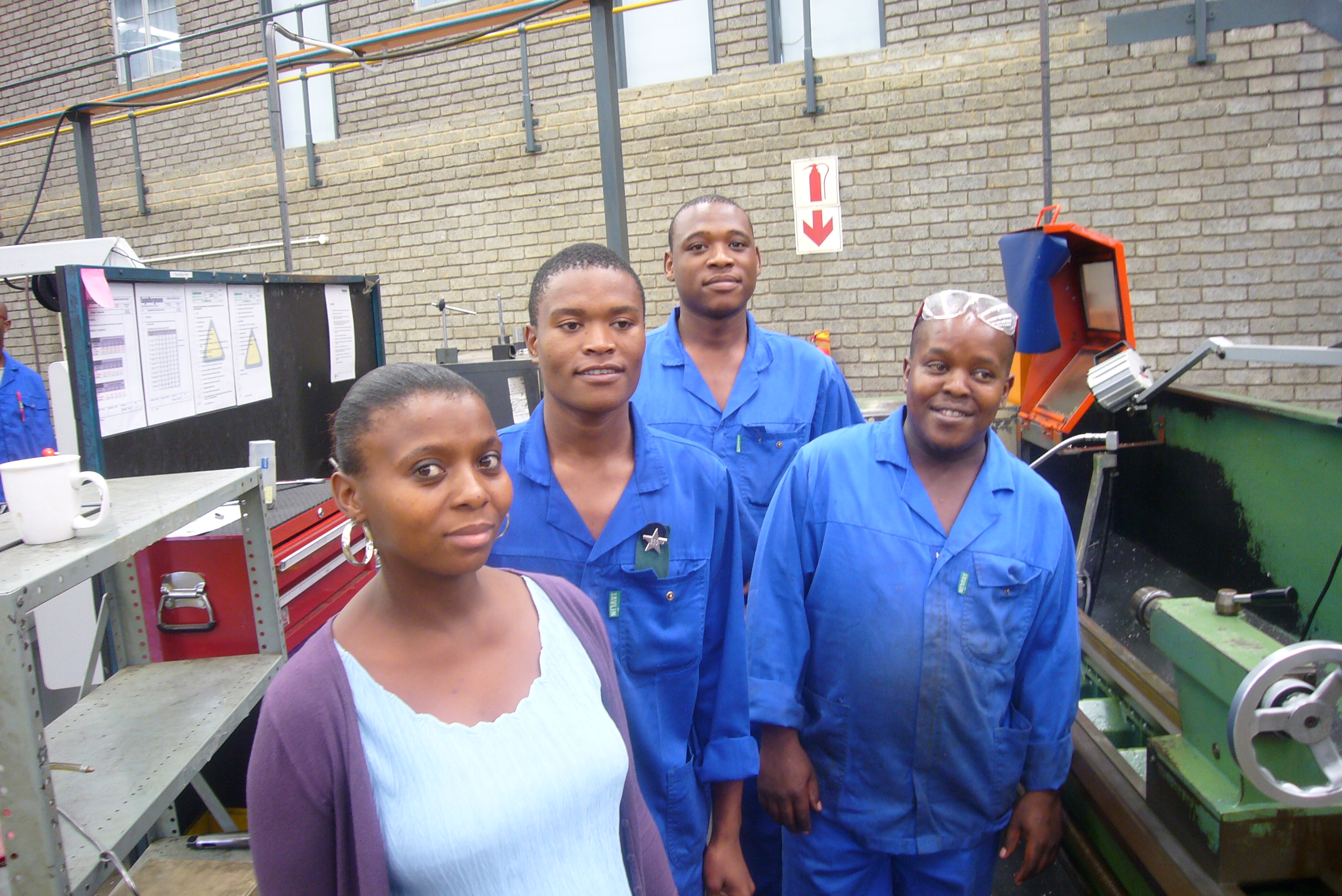
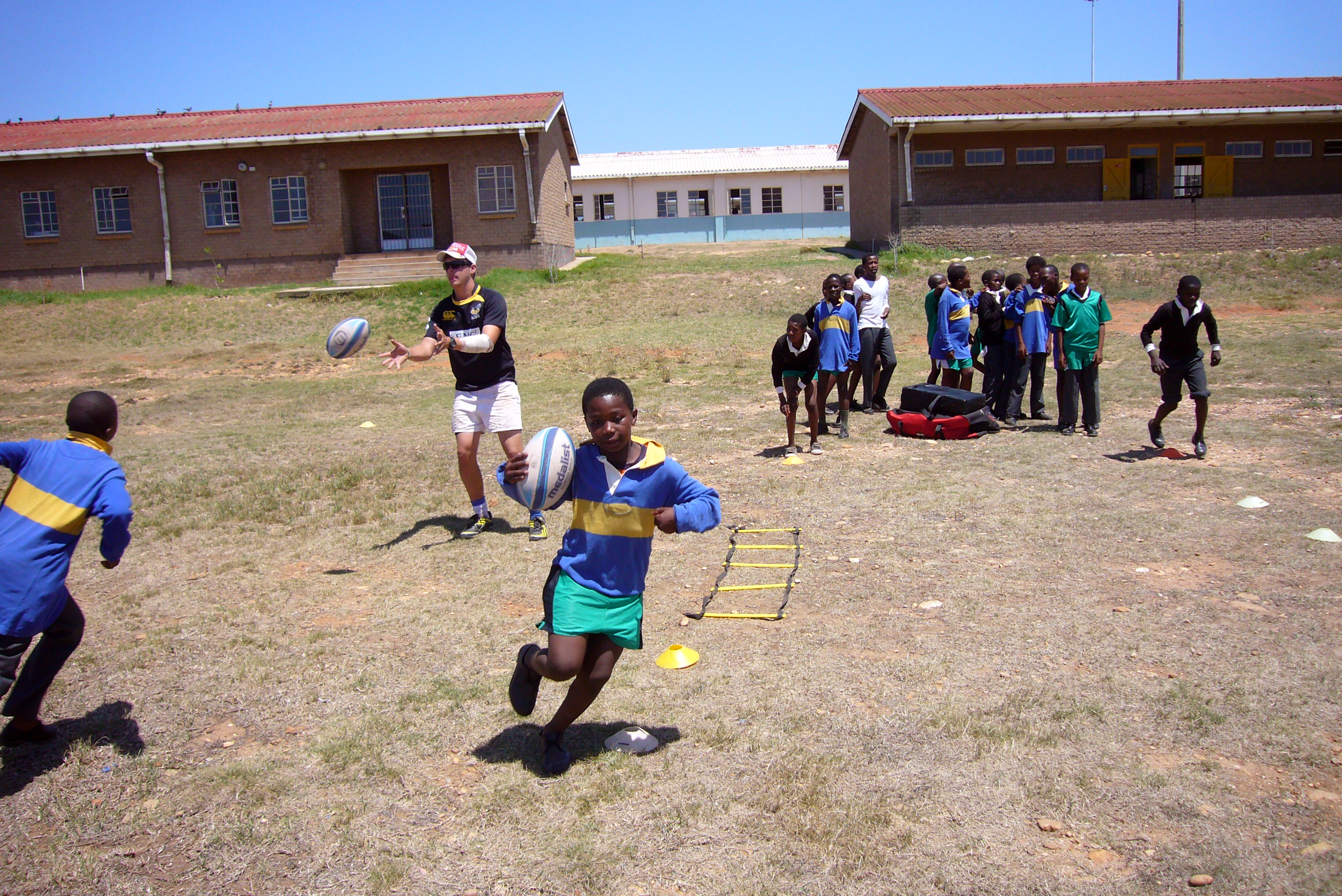
You can find an overview of ongoing debates with our journalists here. Please join us!
If you want to start a conversation about a topic raised in this article or want to report factual errors, email us at english@swissinfo.ch.